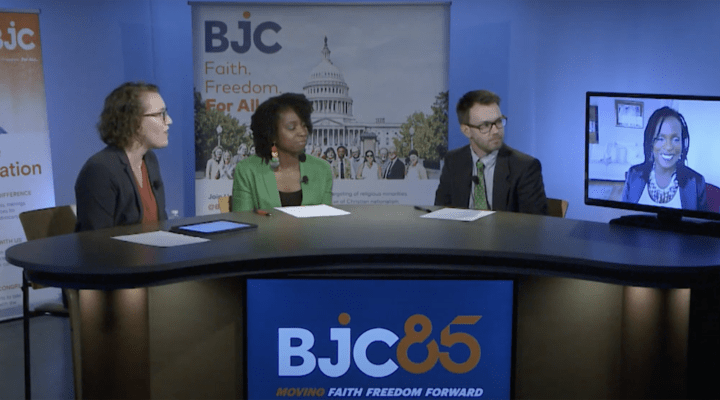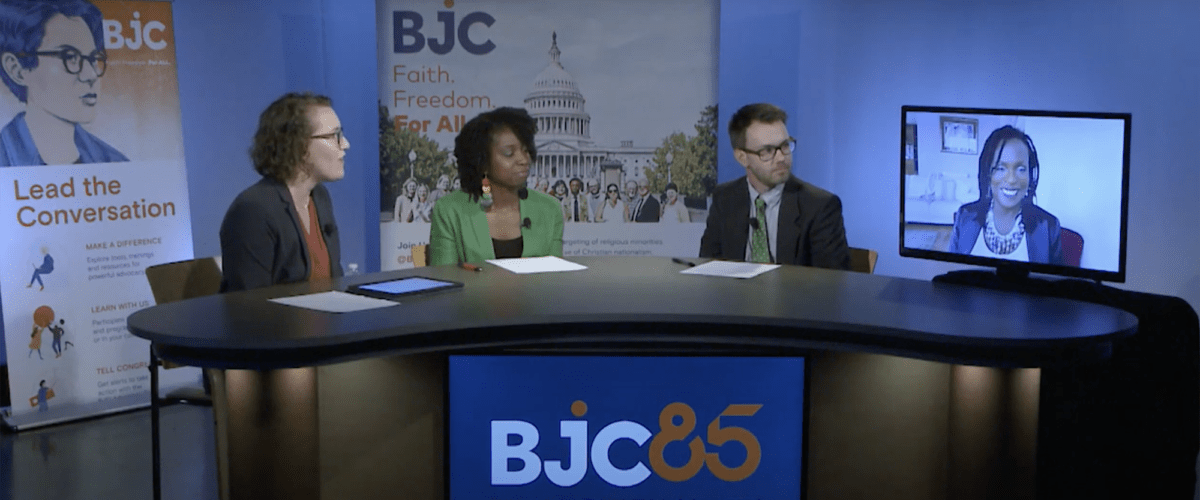Churches must boldly support racial, gender and LGBTQ equality in every aspect of ministry by accepting the inherently and radically political message of the gospel, Jacqui Lewis said during a June 18 virtual gathering hosted by Baptist Joint Committee for Religious Liberty.
But doing so can be scary, said Lewis, senior minister at Middle Collegiate Church in New York City, author, activist and public theologian.
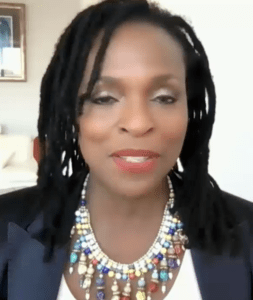
Jacqui Lewis
“Yes, a lot of white people are afraid, but Black churches are also afraid — afraid if we say the wrong thing … people will leave. And the truth is some people will leave,” she said during the event broadcast from the National Press Club in Washington, D.C.
On the other hand, growth also can follow such boldness, she added. Middle Church has seen its membership grow from 400 to 1,600 members since Lewis joined the staff in 2004 and all programming and processes were bent to serve the cause of justice. Many Christians recognize that “walking the walk” against white supremacy expresses “the truth of the gospel,” she said.
“What if we make it an essential way that we do faith? What if we grow fierce courage so that telling the story of anti-racism from our pulpits and in our classrooms and in our small groups is rewarded with increase in pay, increase in offerings and an increase in church?”
But there is cause for grief over the state of social and racial justice in the nation, including the continued entwinement of Christianity and white supremacy, she lamented.
The conflagration of Christianity and white supremacy launched the Ku Klux Klan in 1865, sparked the Jan. 6 insurrection at the U.S. Capitol and continues to foster disparities in education and incarceration rates based on race, Lewis said, and it also brought down a policeman’s knee on the neck of George Floyd. “Racism is so woven into our democracy it’s hard to tell them apart.”
Meanwhile, unarmed Black Lives Matters protesters are viewed as enemies while white men wielding rifles in public settings are handed bottled water. “How damned tired I am of living in a country that treats Black rage as a threat and white rage almost as a sacrament,” Lewis said.
“How damned tired I am of living in a country that treats Black rage as a threat and white rage almost as a sacrament.”
Also worthy of grief is the fact that some now describe the Donald Trump-inspired storming of the U.S. Capitol on Jan. 6 as a “peaceful protest” or claim it does not represent who Americans truly are, Lewis said. “That is not true. That is precisely who we are. We are a nation built on violence. We are a nation built on stolen land and stolen bodies.”
And President Biden’s signature declaring Juneteenth a national holiday does not lessen the white Christian nationalism that keeps people of color at a disadvantage in employment, housing, schools and the economy, she added. Those in Congress who supported the Juneteenth holiday will only “vote against changing policies to respect trans folks, respect a woman’s right to choose and to respect Black folks.”
Lewis said she also is saddened by the church’s active and passive collusion with systemic racism and other forms of discrimination. And white evangelicals don’t get all the blame.
“I think too many of us are afraid to name the way progressive Christianity and conservative Christianity are too often pitted against each other but not allied on disrupting racism,” Lewis said.
Much of Christian theology, in the Black and white church, is “impotent” because it does not recognize Christ for the countercultural leader he was when he fed the poor, healed the sick and crossed social barriers to speak with Samaritans and Canaanites, she added. “I’m grieving how many clergy colleagues are afraid to talk politics from the pulpit as though Jesus himself wasn’t political.”
“I’m grieving how many clergy colleagues are afraid to talk politics from the pulpit as though Jesus himself wasn’t political.”
And June brings another layer of sorrow for her, she said. “It’s Pride month, and too many places in the church we are still homophobic.”
Despite these challenges, Lewis also talked about solutions: Children should be taught practical ways to love all people, anti-Semitism should be opposed because Jesus was a Jew, and racism should be disrupted because God is on everyone’s side.
“What if we make it an essential way that we do faith — to build-in disruption of white supremacy?”
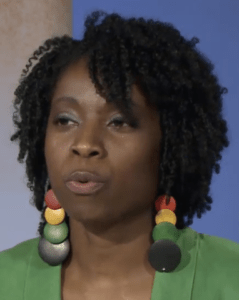
Keisha Patrick
During a brief panel discussion at the conclusion of the event, attorney and former BCJ fellow Keisha Patrick cited Luke 4 to illustrate Lewis’ assertion of Jesus’ thoroughgoing political orientation. Likewise with the story of the sheep and the goats in Matthew 25.
“The whole message touches on each of those things Jesus said he came to do and which he will come back to judge us on,” said Patrick, also a minister at Third Street Church of God in Washington, D.C.
Congregations that support religious freedom should take special notice of Lewis’ words, said panelist Andrew Gardner, a visiting faculty associate at Hartford Seminary and BJC board member.
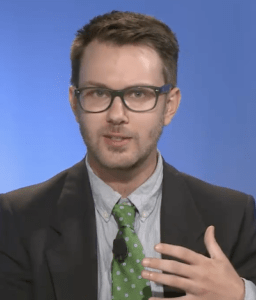
Andrew Gardner
“Putting faith and politics together” is an “important message for BJC congregations,” Gardner said. “So many are white and have the option to do that when it’s convenient and to keep them apart when inconvenient.”
Moderator Robin Anderson, co-pastor of Commonwealth Baptist Church in Alexandria, Va., asked “what could happen if churches would dispute theology that crushes souls?”
Lewis said that could lead to true freedom, but added: “We are not free until everyone’s free. No one is saved until everyone is saved. No one is liberated until everyone is liberated.”
Related articles:
Interdenominational panel warns of extreme danger of Christian nationalism
Christian nationalism provides cover for white supremacy, BJC leader says
Who knew ‘unalienable rights’ could undermine life, liberty and true happiness? | opinion by Marv Knox
There are two Americas, and they are not on speaking terms | opinion by Alan Bean

